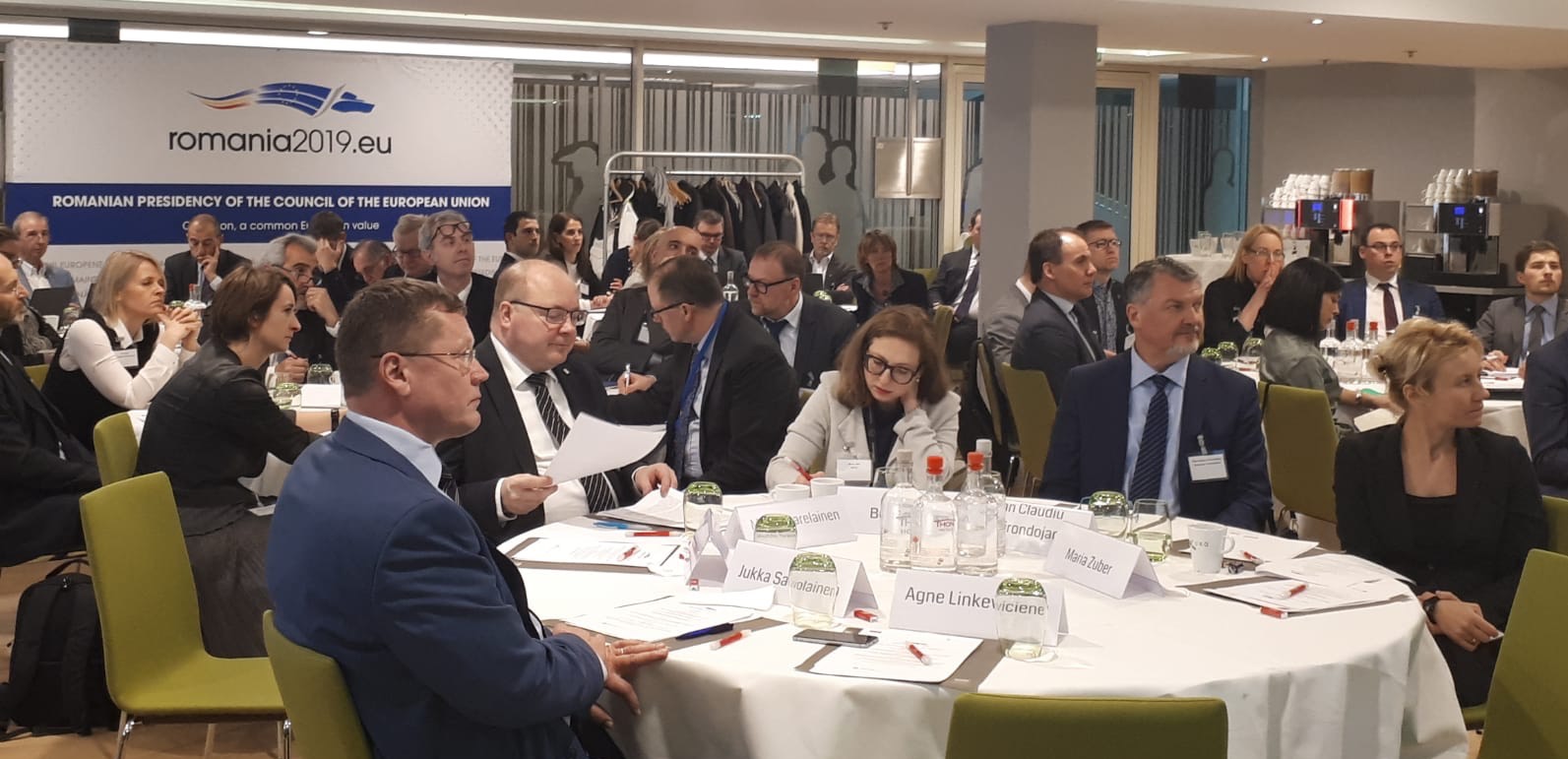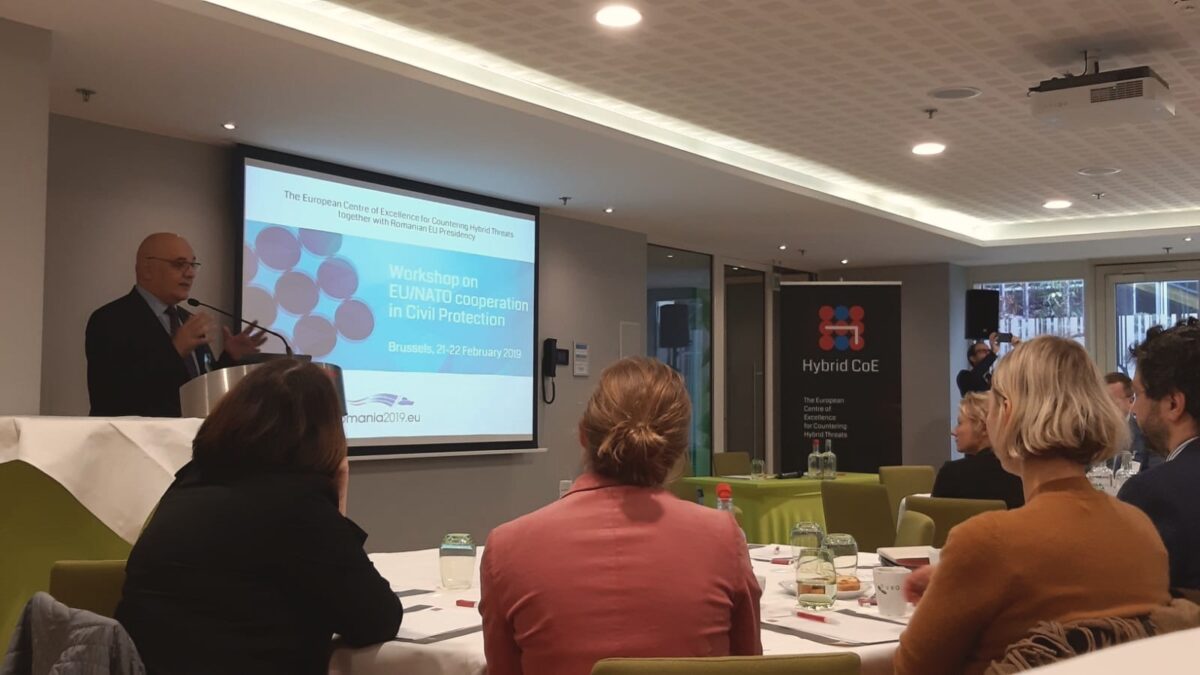With the view to highlight the importance of a common understanding on hybrid threats, the Romanian Presidency of the Council of the European Union and the European Centre of Excellence for Countering Hybrid Threats (Hybrid CoE) organized a two-day joint workshop on EU-NATO cooperation in civil protection. The workshop took stock of EU and NATO requirements and methods for civil protection by testing them in a table top exercise dealing with a medical-based scenario.
In the scenario, a highly contagious respiratory virus was deliberately released, and transmission exacerbated by hybrid incidents in the target country, causing over 2,000 casualties, as national stockpile supplies of lifesaving respiratory equipment ran out when the crisis escalated. Despite the deepening severity of the situation, support from other EU countries was not forthcoming due to their own national needs.

”Hybrid threats during catastrophic events are reality and may break the confidence of the population in public authorities. The use of hybrid scenario elements in this exercise today help us identify gaps that need improvement in responding to complex crises. This will confirm once again the importance of the EU-NATO cooperation in civil protection”, declares Dr. Raed Arafat, State Secretary within the Romanian Ministry of Internal Affairs and Head of the Department for Emergency Situations.
”This event comes in a very important moment, at the time of the adoption of the RescEU proposal. It is equally important for Member States and the European Commission to move swiftly to the implementation phase”, emphasised the Romanian State Secretary.
The tabletop exercise paved the way for an understanding of how the EU can deliver additional capabilities needed by its member states, and which could also be utilized by NATO. “These organizations may be severely hit by sudden turmoil spreading through member states. Actually, this may be the motive behind a terrorist operation, for example. Nevertheless, all new forms of resilience improve our societies’ chances against man-made as well as natural disasters”, said Jukka Savolainen, Director, COI Vulnerabilities and Resilience of Hybrid CoE.
The event was an excellent demonstration of how sensitive topics and situations can be discussed with a good team spirit among nations, the EU and NATO. “We warmly thank the Romanian Presidency for their indispensable cooperation during the whole process of planning and running the workshop”, added Savolainen.
The scenario was designed by Hybrid CoE and Romanian medical experts to provide insights into the real-life, rigorous medical requirements that would need to be met in a hybrid threat environment. The two-day workshop gathered together over 70 high-level experts from Hybrid CoE’s member states, including institutions, healthcare service providers, rescue and public order services, as well as EU and NATO officials.



